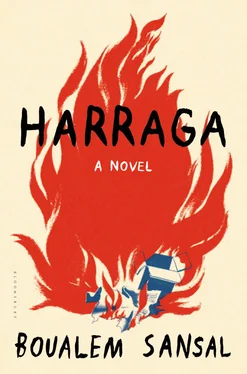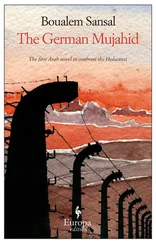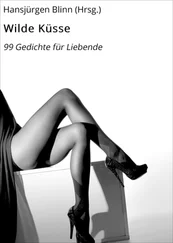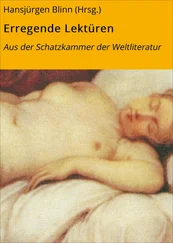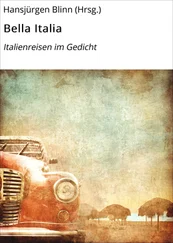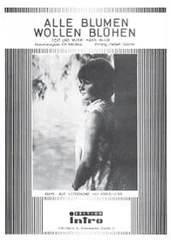I used to love saddling up some wild fantasy and slipping into the parallel lives that loomed out of the whispering darkness, away from the cold sheets of my bed, and see myself cantering off to that place where things end, where real life begins. At their most intense, these reveries could wake me with a savage jolt, like a demon dropped into a font of holy water, my throat choked with anguished cries. In our eagerness to dream, we living dead have a tendency to forget that a mere glimpse of life can be fatal to us. Afterwards, I tell myself that such affectations are unseemly, but then I remind myself that to dream only of the life we know is to darken our days. I was panting and dripping with sweat as I listened to the dying echo at the foot of the stairs as it descended into the cellar like a corpse suddenly conjured or ascended the attic to pass away in among things long forgotten and never to be exhumed. Then I would sink back into the silence, my ears still quivering, and fashion this spontaneous commotion into a skilfully orchestrated tragedy. Sometimes, when the silence was filled with strange noises, I was so terrified I would rush out of the house in my slippers. There, in the sullen shadows of the poplar trees, I would slowly get my bearing. I was alone, lost in the jungle with darkness my only guide. The aim was for my excitements to go hand in hand with reality, and so sometimes I would lay it on thick. I have some rather manly ways of exciting myself, not all of which succeed. A heroine in carpet slippers, a dressing gown and a headscarf is pathetic. I reminded myself of Miss Marple aggravating her arthritis running around spreading gossip. But pain has its own pathways, strange shortcuts that I discover from time to time when it pounces unexpectedly and makes me howl. Then there is the dread, the muffled dread that torments me the way needless fears torment a hypochondriac. Trapped within my hallucinations, I would curl up like an animal, everything inside me quivering and pulsing, and sometimes I could feel my eyes shine with the comforting resignation of death. My life is measured out in long prostrations on the terrace at the far end of my little garden, or in the bathroom where I would scrub myself like a dog to suppress the breathless panting of my soul. Eventually, overwhelmed by the absurd, I would wind up at the foot of my bed, at the end of the night with my dreams, my rebellions. Silence was my refuge and wandering my quest. My life was both rich and poor. And a little histrionic. I asked nothing of it, and it gave me nothing, it was a curious symbiosis, and it was enough. The days shambled past, I abandoned myself to abandonment, everything was fine. How reassuring a barren wilderness can be when the path is well trodden!
And yet it frightened me, that solitude. Jealous, vindictive, it wanted me all to itself, its walls closed in on me, scowling. Would it leave me an open window? I felt myself fade as the life-force guttered inside me. But still I longed to live, to live like a madwoman, to dance like a heretic, to scream exultantly, to get drunk on happiness, to embrace all the misfortunes, all the wild dreams in the world.
I was mad but did not realise it. Kind souls, in their own way, would tell me as much with a reticent look, a pitying smile on their lips like an offering. I would respond with a gale of laughter which merely paved the way for truly malicious gossip which would eventually get back to me, from other, more authoritative mouths, from great-aunts weighed down with victuals and wise maxims who were quick to show up with hot news and remonstrate, from visiting female cousins with hearts so placid I feared for their health, and even from perfect strangers who gaily appeared uninvited pretexting some family connection as tenuous as it was unverifiable, each of them blessed with husbands, legitimate progeny and the assurance that experience gives them the right to speak of good and evil. Behind their words was a vehement dislike, behind their eyes a warning. This was an Islamic country, not a holiday camp. I took it badly, censure calls down the Last Judgment. To be mad does not mean to be unnatural, to live alone is not a crime, it is not the indulgence of the depraved! Could Allah be afraid of a poor forsaken woman?
My work takes up eight, ten, twelve hours a day. I don’t count, I work on cases triaged as urgent while other colleagues — guys with a string of high-flown titles after their name — lie around sunning themselves or stalk the hospital corridors. Sometimes, I feel like I’m a skivvy, it’s humiliating. I arrive first thing in the morning and get home last thing at night or vice versa, constantly rushing. I button and unbutton my white coat on the go. But then again I’m not paid to stand around and daydream. Paediatrics is sheer slavery, by far the most taxing branch of medicine. Children are charlatans; if they’re not crying out of pain, they cry out of sheer spite. And the Hôpital Parnet is hardly a shining example of medical care in Algiers. I spend half my time telling off snotty brats and the other half at loggerheads with the fools in administration. It wears you down. At thirty-five, I’ve got the wrinkles of a sixty-year-old. They call me ‘The Old Woman’, pretending it’s an affectionate nickname to sugar the pill. I don’t take it well. For a doctor, such signs of deterioration are the first steps on the road to ruin, and for a woman who is still young and beautiful it is like being thrown on the scrapheap.
My solitude consoles me for my spinsterhood, my premature wrinkles, my pernicious habits, it consoles me for the pervasive atmosphere of violence, the constant Algerian bilge, the national navel-gazing, the moronic male chauvinism that regulate society. But it cannot make up for the absence of my little brother which is as painful as on the day he disappeared. What has become of him, my God? He has been gone over a year. I haven’t dared contact the police who would only have been annoyed that I had bothered them, who would have invented some trumped-up charge and put us on a blacklist. Sofiane is eighteen, old enough they’d probably think, they would hunt him down to torture him. I’ve done my best to look for him without raising suspicion. Besides, my idiot brother left of his own free will. Legally, he can go anywhere he likes. Democracy has its good points, even in the eyes of the police. Truth be told, the more rights they have the less they worry about their responsibilities.
Bluebeard plays a role in my dreams and my nightmares. I don’t know whether he really exists. He is a shadowy figure behind the Venetian blinds of the house across the street, a ramshackle hovel splintered to the bone that has lain empty since the mysterious disappearance of its owner, a Frenchman — a real one, so I’m told — sometime back in the 1960s. There’s no way of knowing what happened to him. At that age, I did not notice neighbours, any more than in a corner of my childhood memory I registered the comings and goings of a shadow no different from that of any other man. The figure I see now could be the shadow from my childhood trying to resurface. How can I know? A lot of blood has flowed under the bridge since then, an ocean of bitterness through people’s hearts. The population of the neighbourhood has changed several times, it’s a wonder I can find myself. Change grew out of the barrel of a gun, the swift got out while they still could, the stragglers got it in the neck. There was no remission, no pity. The exodus from the land, which was the great success of the period, turned Algiers into a boundless sea of poverty, people come and go and are swallowed up by one of the many shantytowns whose numberless tentacles coil and uncoil from one horizon to the other. Wherever you go, you’re held within its grip. In a sickly city, a breath of rumour sets all tongues wagging. Stop one and ten more scuttle out of the shadows laying claim to some scrap of truth. People began to say my house was haunted. Children got goosebumps, old ladies shuddered, scurrying past as fast as their withered legs would carry them. The fear was such that the street became deserted. Shopkeepers packed up and moved on and their customers followed. Haunted, my eye! Everyone said there had been some funny business, some underhand ploy to divest the Frenchman of his property, but no one was prepared to be a witness to anything, certainly not to a crime so cunningly contrived. Where there was conspiracy, there were threats, and where there were threats, most people quietly assumed the government were involved. Personally, I used to believe it was haunted and I had nightmares about it. Doubt crept in. Ghosts are fun, they get a kick out of scaring people. But the ghost I saw was different; rather than flitting about going woooooo , it lay in wait, watching intently, which meant the shadow was something real, something flesh and blood with a head full of ideas that were reactionary if not dangerous. Which broadens the scope of possibilities. Is he an assassin lying in wait, some killer in a turban; is he a cornered, desperate fugitive, or a suicide-bomber determined to set the neighbourhood ablaze? In my more paranoid moments, that is how I imagined him. In cheerier moments, I gave my imagination free rein, I pictured him as a lover racked by remorse, a Quasimodo dying on a dusty bed, a mystic fascinated by his own navel, a kind-hearted Elephant Man, a cantankerous old grouch abandoned by his family, a wild-haired scientist involved in some astounding research. Does he ever leave that window? Never when I am at home. How does he occupy his time when I’m out? I could not help but wonder. For the most part, I simply glanced in his direction and casually turned away.
Читать дальше
